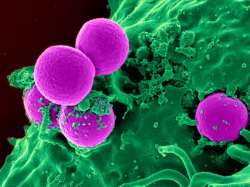Scientists found a new organ in human body, could help understand cancer better!
Scientists have found a new organ in the human body called Interstitium which is a network of fluid-filled pockets.

It’s not an everyday thing to hear about scientists discovering a new organ in our body. It is usually misunderstood that a human anatomy doesn’t change from person to person. Doctors have just discovered that we’ve had an organ in our body which the medical community never spotted. It’s called interstitium. It is defined as the network of fluid-filled spaces in our human tissue. These tiny pockets of fluid are distributed all over our body. Especially our digestive tracts, urinary systems, lungs and muscles are surrounded by these fluid-filled pockets.
These compartments are found beneath the skin, as well as lining the gut, lungs, blood vessels and muscles, joined together to form a network supported by a mesh of strong, flexible proteins. To provide a highway for fluid to move around the body, the interconnected cells of the interstitium may therefore have the unfortunate side effect of spreading cancer around the body.
Dr Neil Theise, a pathology professor at NYU Langone School of Medicine revealed in his study. He took to his Twitter to break the news to the world. He wrote, “We discovered a new human organ! Comprising the submucosae of all visceral organs, the whole dermis, all perivascular connective tissue, and all fascia Maybe the largest organ by volume (~10 liters). & noone had ever seen it before!”
Understanding this newly discovered frontier in human anatomy could allow scientists to develop new tests for cancer. The entire findings are published in the journal - Scientific Reports, the first to identify these spaces collectively as a new organ and try to understand their function.